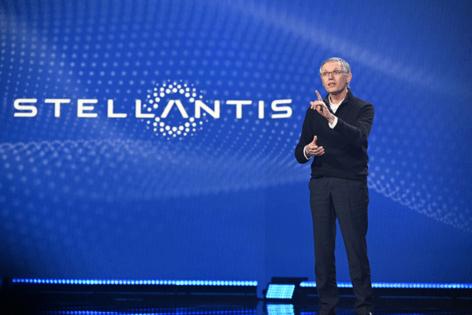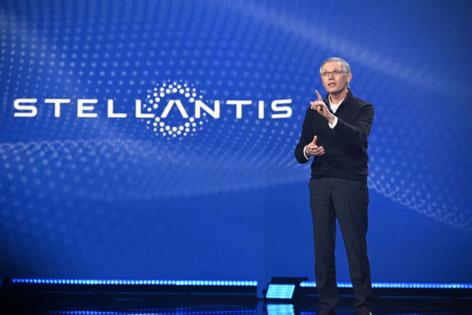Stellantis CEO says 'cost-cutting race' of EV transition will especially hit suppliers
Published in Business News
The electric vehicle transition is a game of severe cost-cutting, and automotive suppliers must figure out how to adapt or risk going under in the next five to 10 years, Stellantis NV CEO Carlos Tavares warned Wednesday.
EVs cost 40% to 50% more to produce than gas-powered cars on average, he said. That means automakers like Stellantis are "not in a race to transition to EVs, but in a race to cut costs on EVs" as they seek to build battery-powered cars that are affordable for the middle class.
This cost-cutting race will be a "big, big, big burden" on parts suppliers, Tavares said, considering the vast majority of any new vehicle's production costs come from its parts.
"You can already see in Europe, significant tier-one suppliers with very well-known names that are already in trouble for this specific reason," Tavares said during a fireside chat at the Berstein Strategic Decisions Conference in New York City. "The EV race has become a cost-cutting race."
He suggested automakers including Stellantis will begin relying even more heavily on parts supplied from countries such as India, Turkey, Morocco and Mexico — countries where it's possible to have "a 30% to 40% variation on the cost of the same part, the same system, with the same specs" compared with parts made in the United States or Europe.
"This is the reason why, to absorb the 40% of EV additional cost, you are going to see a huge shift of the supply base," the CEO said. "The sourcing will move from the Western world to the best-cost countries."
Stellantis is well known for its aggressive stance toward cutting supplier costs and pushing for more productivity. In the United States it is involved in several financial disputes with suppliers, including at least three that are being litigated in Oakland County and in federal court. In an annual survey of suppliers gauging their working relationships with six major North American automakers, the company has ranked last for several years.
Tavares said his company is only just beginning its electric "offensive" in the United States, including with the launch of the first Jeep EV, the Wagoneer S, an upscale crossover, later this week.
He pledged there will be a much cheaper EV Jeep offering — starting around $25,000 — sometime "very soon."
In the Bernstein Research talk, the CEO also weighed in on countries like the United States putting up barriers to affordable Chinese EVs flooding their markets — including the Biden administration upping tariffs to 100% on such cars — saying the moves aren't necessarily helpful, especially for a global company such as Stellantis.
"If you go on the protection side, instead of going on the racing side, guess who is going to lose? It's quite obvious, right?" Tavares said. "So at the end of the day, the governments are trying to manage short-term issues. But the real question is, how do you make your industry competitive? And if you isolate your industry from the rest of the world, is that going to help you to be competitive, or do you accept to lose your export capability?"
Only the companies that are "exposed to the harsh competition of the Chinese carmakers are going to be the winners — if they are able to survive the Chinese competition," the CEO added.
©2024 www.detroitnews.com. Visit at detroitnews.com. Distributed by Tribune Content Agency, LLC.










Comments